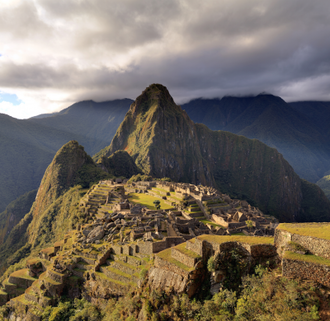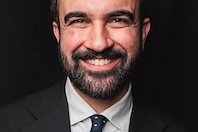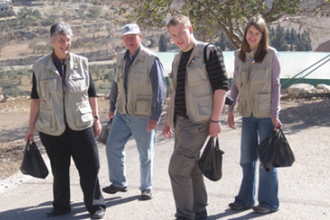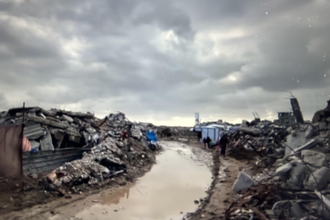CAFOD welcomes Pope's forthcoming visit to Peru

Martin St-Amant (S23678) Wiki image
Pope Francis will arrive in Peru on Thursday 18 January for a three day visit, as part of a trip to Chile and Peru. This will be the first visit by a Pope to Peru in 30 years.
Illari Aragon, CAFOD's Programme Office for Peru, welcomes the trip, saying: "During Pope Francis' visit to Peru, CAFOD hopes to hear a message of solidarity and hope for those who are impacted by poverty, inequality, and the negative effects of climate change, as well as those who suffered so much during the armed conflict in Peru.
"We hope that his message also reaches the conscience of people involved in the destruction of Peru's Amazon, and that he is able to speak out about the rights of indigenous people when he hears first-hand from them about their concerns, struggles and hopes for the future. Peru has a big role to play in the fight against climate change and the protection of the common good, and we hope the message of the Pope's encyclical Laudato Si' is heard louder than ever.
"Peru is one the countries that will be most affected by climate change, despite being responsible for just a fraction of global CO2 emissions. But the local communities CAFOD works with in Peru are already feeling the impacts. We are helping them to adapt to the changing climate, and providing support when disasters strike.
"The Pope will visit Trujillo, a coastal region affected by climate change, including flooding resulting from the extreme El Niño event in 2017, when heavy rains, mudslides and landslides destroyed the homes of around 142,000 people and caused incalculable loss in infrastructure and arable land.
"CAFOD supported the local Church to deliver food, water, clothes, nappies, first aid kits and roofing sheets to families. When I visited, people told me that what they lamented most was the loss of their plots of land. Whilst their house could be restored, some crops will take several years to grow before they become productive again. This was a source of income for many people.
"Water supply is also a major issue in Peru. 70 per cent of the population and most of the country's economic activity are concentrated along the Pacific coast - a desert with high demand for water, yet water supply in Peru is ever diminishing due to glacial melt. Peru's dependence on agriculture also exacerbates these risks.
"The Peruvian Government has decided to base its economic model on mining, energy and the exploitation of natural resources, yet CAFOD is extremely concerned about the impact this is having on the environment, particularly water, and on the poorest and most marginalised in the country.
"In line with Pope Francis' message in his encyclical Laudato Si', CAFOD and our partners are calling for a more inclusive discussion about how we can protect our common home and ensure the economy serves the people and not vice versa. Any development plans in Peru must take into account what local communities want.
"Many Peruvians will be hoping that during his visit Pope Francis shares a message about justice and the true meaning of reconciliation in a post-conflict society. An official 'humanitarian pardon' granted by the president Pedro Pablo Kuczynski to Peru's ex-president Alberto Fujimori on Christmas Eve sparked protests and wide condemnation. The pardon of Fujimori has opened the wounds of thousands of victims and their families who feel betrayed by this move and consider that forgiveness and reconciliation cannot be attained without justice. A message on these issues from a spiritual leader would be welcomed by many in Peru."
On arrival, Pope Francis will be welcomed by Peru's President, Pedro Pablo Kuczynski. He will then travel to Puerto Maldonado to meet with the Amazonian people and indigenous leaders. Puerto Maldonado is the capital city of the Madre de Dios, a region known as the country's 'biodiversity capital'. The region is at the heart of Peru's problems relating to illegal gold mining and illegal logging. It is also a focus point for human trafficking and there is very little state presence. He might send a message of concern about the situation of the environment and human life in this forgotten part of the country, as well as about the importance of hearing the voice of those most vulnerable in society. He will also travel to Trujillo, a coastal city which was devastated by the 2017 El Niño event. CAFOD responded to last year's extreme El Niño flooding on the outskirts of Lima. In this city, Pope Francis will hold masses and carry out visits in the Pope mobile. There will also be a mass in Lima at the end of his trip for over one million people.
The last visit by a Pope to Peru was in the 1980s. St John Paul II travelled to Piura, Lima, Cuzco, Ayachucho and the Amazon city of Iquitos in a visit to Peru in 1985. He met with indigenous leaders there and talked about the importance of protecting their rights and the value of ancestral cultures.


















